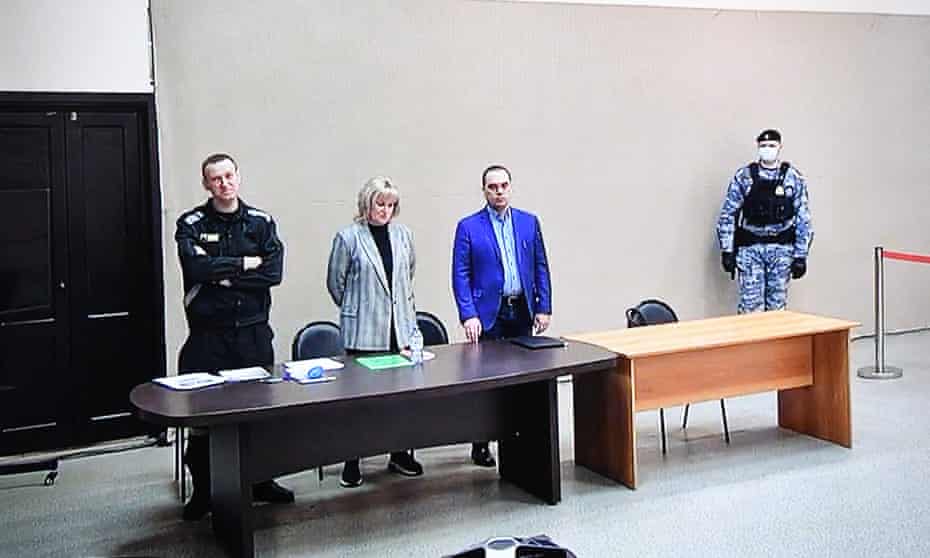The jailed Kremlin critic Alexei Navalny has been found guilty of large-scale fraud and contempt by a Russian court.
The verdict on Tuesday means that Navalny, Vladimir Putin’s most prominent critic, is likely to face a substantial extension to his jail sentence.
He is already serving a two-and-a-half year sentence at a prison camp east of Moscow for parole violations related to charges he says were fabricated to thwart his political ambitions. A further 13 years could now be added because of the latest criminal case against him, which he has dismissed as politically motivated.
A gaunt Navalny stood besides his lawyers in a room filled with prison security officers as the judge read out the accusations. The 45-year-old seemed unfazed as he flipped through court documents.
Prosecutors had asked the court to send him to a maximum-security penal colony for 13 years on charges of fraud and contempt of court. A ruling is expected later on Tuesday.
The judge, Margarita Kotova, said Navalny had committed a criminal offence by publicly insulting the court. She confirmed he had pleaded not guilty to the fraud charges.
Navalny was jailed last year on his return to Russia after receiving medical treatment in Germany following a poison attack with a Soviet-era nerve agent during a visit to Siberia in 2020. Navalny blamed Putin for the attack.
The Kremlin said it had seen no evidence that Navalny was poisoned and denied any Russian role if he was.
After the last court hearing into his case, on 15 March, Navalny struck a typically defiant tone, writing on Instagram: “If the prison term is the price of my human right to say things that need to be said … then they can ask for 113 years. I will not renounce my words or deeds.”
Authorities have cast Navalny and his supporters as subversives determined to destabilise Russia with backing from the west. Many of Navalny’s allies have fled rather than face restrictions or jail at home.
Navalny’s opposition movement has been labelled “extremist” and shut down, although his supporters continue to express their political stance on social media, including their opposition to Moscow’s military intervention in Ukraine.

